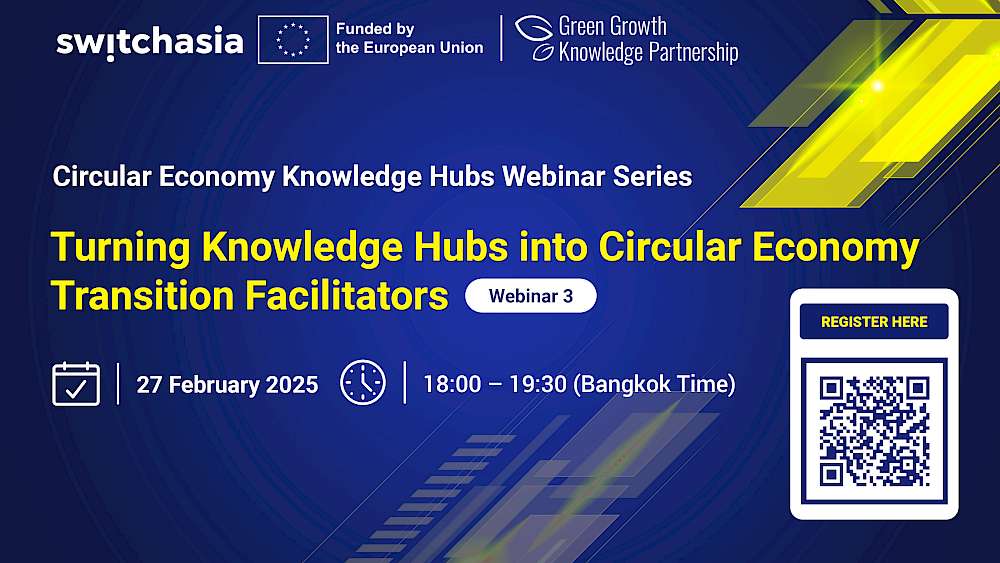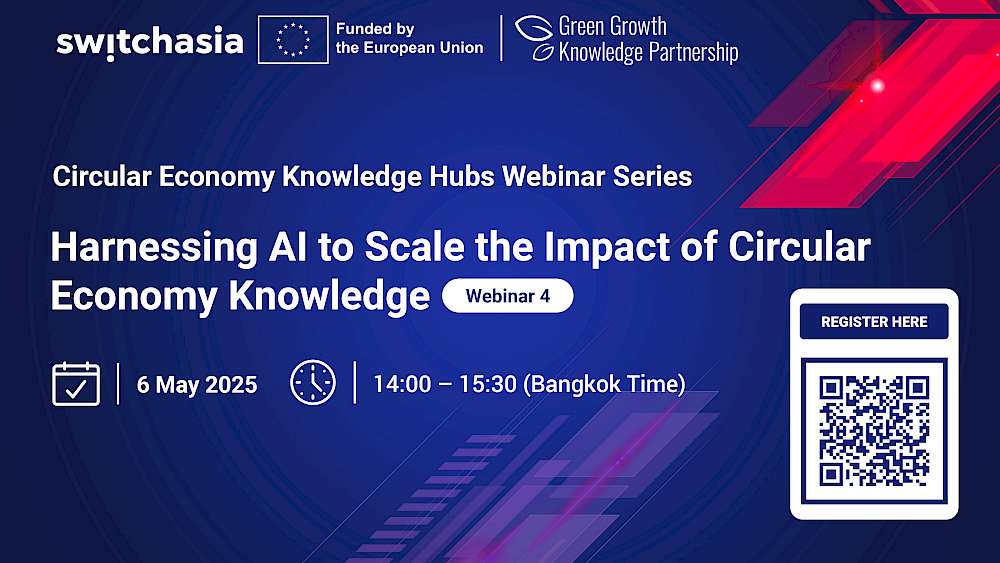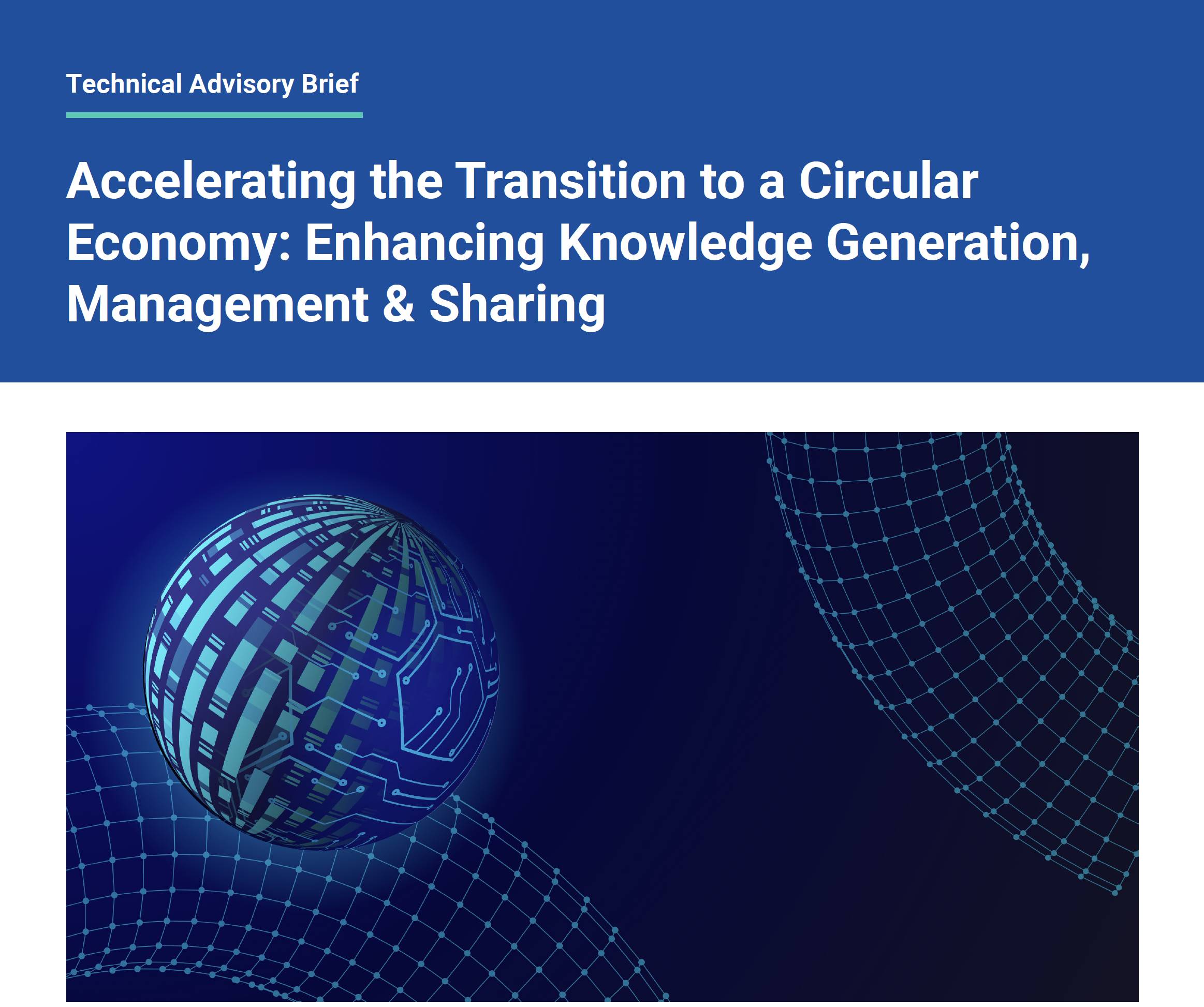
Location: Global (Asia, Europe, Africa, Latin America and Caribbean)
Themes: Circular Economy Knowledge Hub
The Challenge
The SWITCH-Asia programme recognises the contribution of regional stakeholder platforms and networks that support sustainable consumption and production (SCP) and circular economy (CE) implementation. Such platforms involve SMEs and business intermediaries into facilitating adoption of cleaner technologies and more sustainable industrial practices, as well as help consumers to act more responsibly in their daily choices. If successful, such platforms and networks contribute into improved SCP and CE national strategies and action plans and, as a result towards more sustainable practices.
As the number of circular economy projects increases globally, a significant challenge they may face is alignment among initiatives, despite frequent overlaps in topics, objectives, and target audiences. This issue stems from differing interpretations of circular economy principles, which vary in technical terminology, prioritized sectors, stakeholder groups, and cultural distinctions. These challenges might also lead to a fragmented approach to managing and disseminating the knowledge, skills, and information required to strengthen actions toward a green and circular economy.
Addressing these challenges requires on one hand, systemic and extensive changes to economic models and business practices at different levels. On the other hand, the transition towards the circular economy will also necessitate strong support for innovation and the expansion of actionable knowledge across countries and regions.
Objectives
This intervention co-implemented by the SWITCH-Asia Policy Support Component and the Green Growth Knowledge Platform (GGKP) has the ambition to develop a common framework on Circular Economy principles and knowledge by actively involving several regional and global circular economy knowledge and stakeholder platforms (Asia, Europe, Africa, Latin America and the Caribbean) into their development. In this context, a knowledge taxonomy is defined as a system for classifying large amounts of green and circular economy knowledge based on criteria such as knowledge type, topics, sectoral focus, and target audience. This initiative is part of the EU action to accelerate the global transition to a green and circular economy, aiming to strengthen policies, enhance knowledge sharing, and meet societal demands for sustainable consumption and production.
Through GGKP AI-assisted knowledge management infrastructure, such framework would contribute into:
- Improved availability and applicability of practical and experience-based CE knowledge for decision makers, including policy makers;
- Improved searchability, access and contextual understanding of good practice CE knowledge and expertise for initiatives supporting green and CE actions;
- Improved awareness of the business agenda and case for CE among SMEs;
- Overall improved knowledge management practices in Circular Economy Platforms.
Way Forward
- Research and map knowledge hubs of key global and national green and circular economy initiatives.
- Lead consultations with platforms and initiatives to present, discuss and co-create proposed common circular economy knowledge taxonomy to inform and educate AI supported knowledge management processes.
- Develop a common and joint Green and Circular Economy Framework (common language system), that would best reflect the existing knowledge taxonomies from both the GGKP platform and selected identified platforms and initiatives.
- Contribute to GGKP online global and regional events, workshops and discussions through webinar series.
Webinars and Workshops
Watch the introduction recording here Watch the recording here
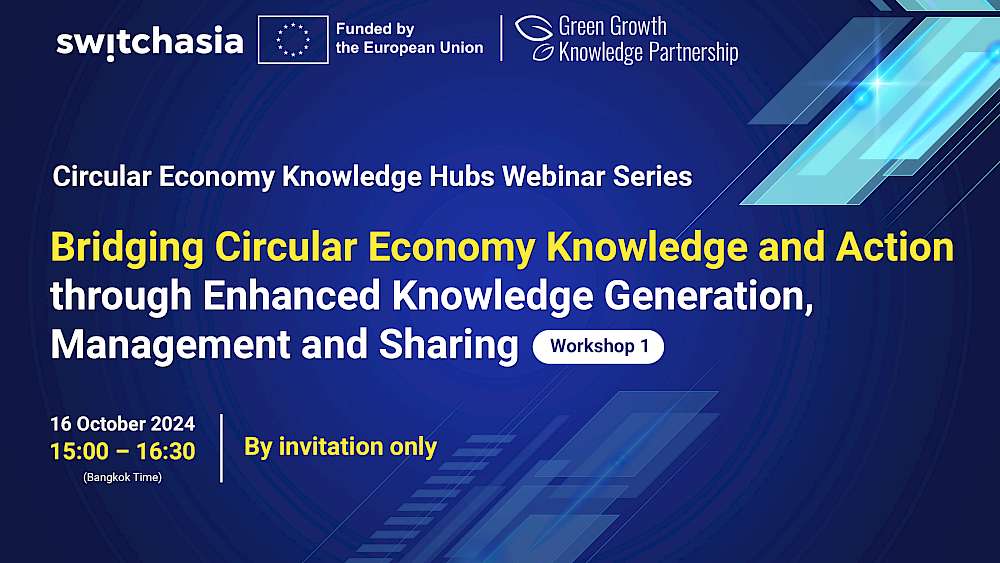
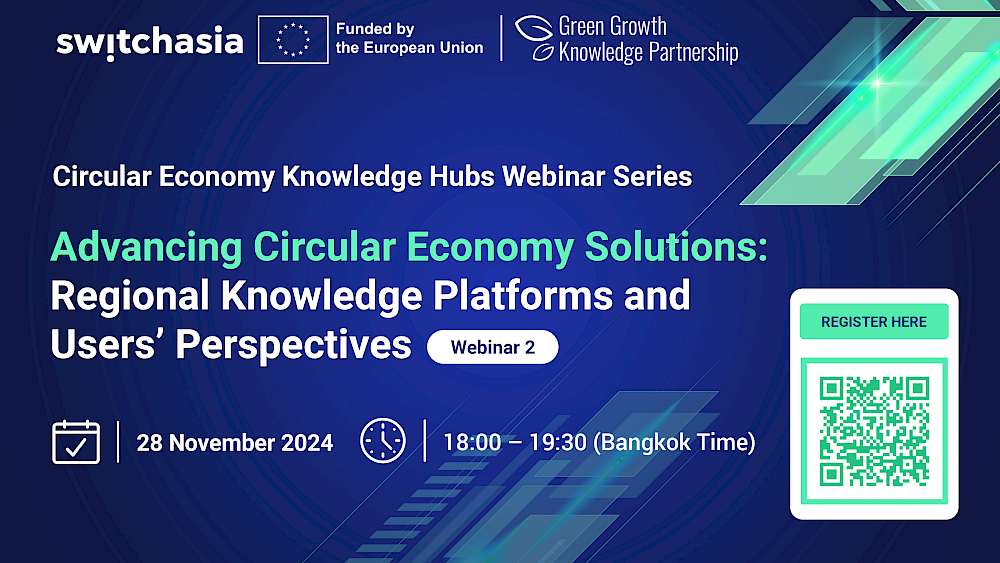


Watch the recording here Watch the recording here
